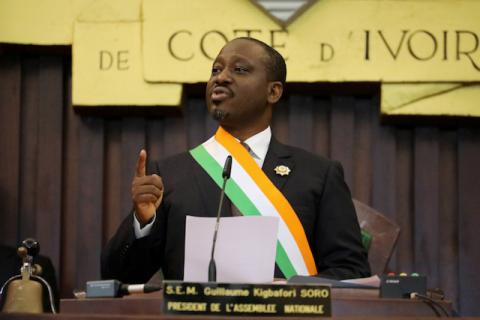Advertisement
Ivory Coast presidential candidate Soro rejects coup allegations
PARIS (Reuters) - Former Ivory Coast rebel leader Guillaume Soro dismissed an arrest warrant issued against him as baseless and said he would pursue his campaign as a presidential candidate from overseas, according to comments published in a French newspaper on Sunday.
Ivory Coast's public prosecutor issued the warrant for Soro on Dec. 23 as part of an investigation into an alleged coup plot, forcing him to call off a planned homecoming for the first time since May and ahead of the October 2020 election.
Soro - who gave the interview to the Journal du Dimanche (JDD) in Paris on Dec. 26, and has been based in France for the past six months, according to the newspaper - said the warrant was politically motivated.
"This warrant is not based on the law, but has simply been issued to stop a candidate from trying to win office," Soro said.
He added that an audio recording being cited by prosecutors in their allegations was a manipulation and the result of a set-up. The warrant was issued for breaches of state security, receiving stolen public resources and money laundering.
The case involving Soro, who retains the loyalty of many former rebel commanders who now hold senior positions in the army, could significantly increase tensions ahead of the election, which is seen as a test of Ivory Coast's stability.
On Saturday, Ivory Coast President Alassane Ouattara said Soro was not above the law and would face justice for allegedly seeking to destabilise the country.
That came after a group of Ivory Coast opposition parties accused state authorities on Friday of trying to intimidate them before the presidential election, and denounced the warrant against Soro.
Soro said he had not had any contact with French President Emmanuel Macron's office during his time in France and had not asked for protection from French authorities. Macron visited Ivory Coast in late December, before the warrant emerged.
Soro said he would work on a form of political resistance from overseas for now.
"I am and remain a candidate for the presidency," he said.
(Reporting by Sarah White and Nicolas Delame; Editing by Chris Reese)



















Add new comment